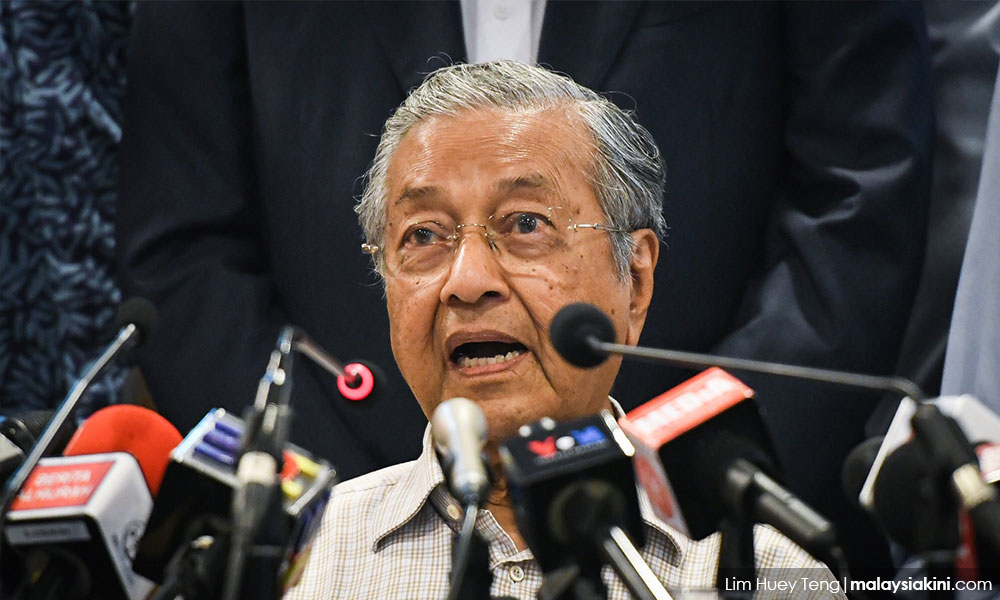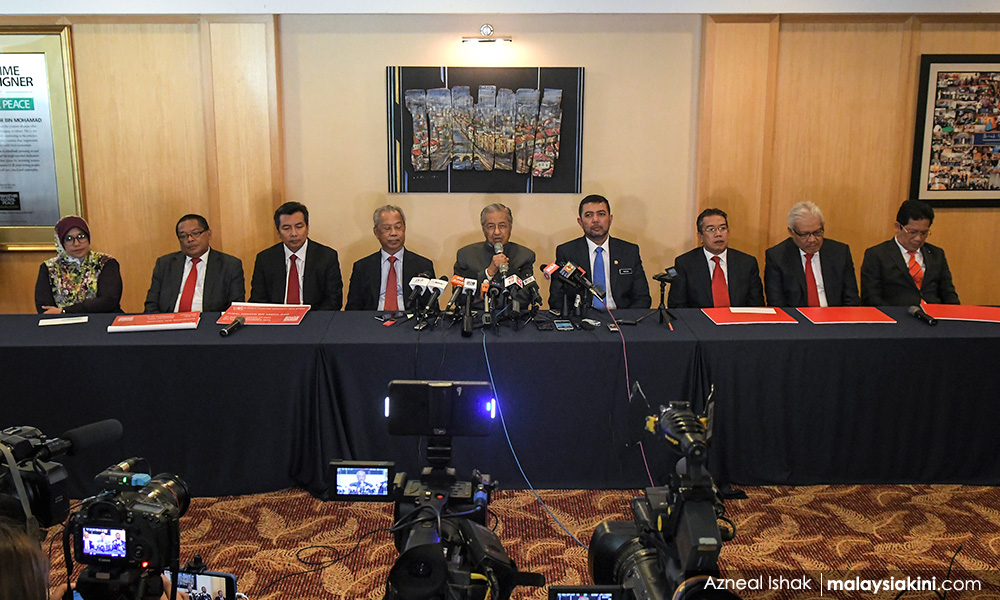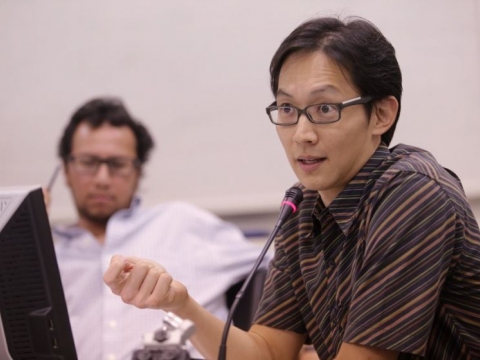September 20, 2018
New regimes, old policies and a bumiputera reboot
by Dr. Hwok-Aun Lee
New regimes, old policies and a bumiputera reboot
Dr. Hwok-Aun Lee is Senior Fellow at the Institute of Southeast Asian Studies (ISEAS), Singapore, with the Malaysian Studies and Regional Economic Studies programmes, Hwok- Aun has researched and published widely on affirmative action in Malaysia and South Africa. He was previously head of Development Studies, Faculty of Economics at University of Malaya.
Malaysia’s incipient Pakatan Harapan (PH) government, inheriting the country’s financial debacles and its extensive and complex ethnic policies, negotiates a three-cornered tussle.
As a first order of business, it must clear a fiscal morass and deliver on election promises of integrity, transparency, and prudence. The government also strives to accommodate the interests of constituencies it won by a landslide, which brings various non-Malay concerns to the fore.
At the same time, PH seeks to allay anxieties of substantial segments of the Malay electorate that remain wary of the new dispensation, and perceived loss of privileges and sureties. This is a difficult balancing act, demanding delicate transitions and bold new mindsets.
Thus far, we see firm action on fiscal discipline, and familiar electoral overtures and concessions. But old mindsets endure. Their prevalence, exhibited in the open tender and ethnic reservation policies in public procurement, and in ethnic allocations in higher education, will hinder PH’s capacity to make headway in promoting Bumiputera capability and competitiveness, which are prerequisites for systematically rolling back ethnic preference.
New government, old policies?
Ten years apart, Lim Guan Eng (the Democratic Action Party chief) gave starkly similar policy assurances to Malay contractors – from vastly different positions. The first episode occurred in April 2008 when Lim was catapulted to high office following the 12th General Elections (GE12). As Penang Chief Minister, he assured Malay contractors that his administration’s open tender policy would not sideline them. While announcing the policy a few weeks prior, he justified it as a means to arrest the New Economic Policy’s (NEP) cronyism, corruption, and inefficiency. His words stoked anxiety and ire among some Malay groups. UMNO, hegemon of the Barisan Nasional (BN) federal government, capitalised on these sentiments to foment fiery public protests against Lim. Over 10 years, open tenders were implemented in Penang for larger contracts, while the smallest category was reserved for Malay contractors, in line with BN-prescribed federal policy.
The second episode passed in June 2018. Freshly appointed Malaysian Finance Minister Lim Guan Eng affirmed an open tender policy for federal public procurement – backed by the PH’s groundbreaking occupation of Putrajaya. And yet, swift on the heels of this pronouncement, he again declared that the government would not sideline Malay contractors. He even appended a befuddling note that “open tender” means open to all Malay contractors (with more competitive selection). Malay contractors hadn’t protested in the streets, although they had met with the Council of Eminent Persons just two weeks after GE14. Perhaps they were given enough assurances to preempt public dissent, but Lim also strenuously avoided upsetting the status quo.
Hence, we see no indication that public procurement procedures may be enhanced and invigorated. Open tenders for medium and large contracts – where non-Bumiputera companies more actively participate – satisfy some electoral constituencies; continual reservation of small contracts for Bumiputera firms satisfies others.
This is unfortunate, because Malaysia cannot fulfill the ultimate goal of rolling back ethnic preferential policies – professed by both the PH and BN coalitions for the past decade – unless the country clarifies, enhances, and broadens the ways it develops Malay capability and competitiveness.
Public procurement has distributed enormous largesse over many decades, but has fallen far short of its goal of grooming Malay enterprise. To be sure, the policy has in the past been vitiated by UMNO patronage and ‘Ali-Baba’ arrangements where a politically connected UMNO fixer secures the deal and subcontracts the work – typically to a Chinese company. These fronting practices have been tackled in recent years, and the new administration shows added resolve to cleanse and depoliticise the system. But it remains unclear about how it will leverage government contracting for broader developmental objectives.
The current state of the sector, with a handful of dynamic large-scale Malay contractors and overwhelming concentration of protected, static small-scale contractors, may well be perpetuated. Three-quarters of Bumiputera contractors are classified as G1, the smallest of seven tiers needing paid-up capital of only RM5,000-10,000 (A$1690-3380), and almost all remain there. In 2011, less than 0.2% of them graduated to G2 or G3. G1 contractors must be 100% Bumiputera owned and qualify for contracts worth RM200,000 (A$67,581) or less, which are allocated via balloting, not tendering. Given these conditions, who would want to move up? The flip side of “not sidelining Bumiputera contractors” is not doing much at all to facilitate expansion, innovation, and competitiveness.
A similar scenario has played out in the higher education sphere. Matriculation colleges offer a faster track to enter university, and since their rapid expansion from the late 1990s, have been the predominant pre-university option for Bumiputera students. Matriculation programmes were originally fully reserved for Bumiputeras, but since 2003 they have applied a 10% non-Bumiputera quota.
The quota balance, and occasional special allocations, epitomise Malaysia’s political bargain, where size of the ethnic slice preoccupies policy considerations, much more than the efficacy and equitability of the intervention. Pre-GE14, BN promised 700 places in matriculation colleges to Indian students. Post-GE14, PH announced an extra allocation of 1,000 spaces to Chinese students from B40 households (the bottom 40%, based on household income). The addition of socioeconomic criteria marks a progressive step, but simultaneously raises questions over its selective application to one ethnic group. Facilitating more entry of disadvantaged students into higher education should be high on the agenda of a government declaring priority in expanding need-based policies.
Understandably, the programme must remain accessible to Bumiputera students. PH is studiously aware that it has not won over the majority of the Malay electorate; analysis of GE14 results show the community’s vote roughly split 35-40% for BN, 25-30% for PH , 30-33% for PAS. PAS has also heightened the volume and fervour of its Malay “privileges” advocacy, alongside its Islamist raison d’etre. Education Minister Maszlee Malik reiterated that the additional 1,000 matriculation spaces for B40 Chinese would not reduce the spaces for Bumiputeras. So matriculation colleges will remain predominantly reserved for Bumiputeras, perhaps with continual allotments to particular groups.
However, allocating more quotas for other groups lowers the academic bar for more beneficiaries. It continues to set back Bumiputera capability development, due to the deficiencies of the matriculation programme. Studies have shown that matriculation graduates fare poorer than STPM (Malaysia’s A-levels equivalent) graduates upon entry to university. Education disparities are deeply rooted. Advantage and disadvantage overlap with various factors, including ethnicity and geography, and can start from the pre-school stage, setting students on diverging academic trajectories. While matriculation colleges cannot be expected to close the achievement gaps they can arguably play a more meaningful and effective role in narrowing them. To Malaysia’s ultimate detriment, the content and rigour of the matriculation programme are never brought to the table.
Interestingly, Maszlee has mooted the notion of a single pre-university system, which entails merging the STPM, matriculation, and a host of other university entry channels. It’s a worthwhile consideration, but it does not seem possible until the average ethnic achievement gaps are narrowed, which in turn looks improbable unless the matriculation colleges are revamped.
Basic reset
Racial quotas and reservations remain because their removal risks alienating the beneficiaries. Surveys consistently show a substantial majority of Malays favour the continuation of preferential policies.
Despite bi-partisan rhetoric since 2010, of shifting away from race-based affirmative action to need-based affirmative action, the vast bulk of Bumiputera preferential programmes have remained untouched, from matriculation and contracting quotas mentioned above, to microfinance, technical training, business loans, scholarships and asset ownership schemes. The vast programmes deliver benefits, and embed expectations of continued special treatment.
Mindful of these realities and sentiments, both PH and BN governments underscored their support for the Bumiputera agenda before and after GE14. PH typically highlights the worst abuses of the system, involving UMNO patronage and utilisation of state-disbursed opportunity for private gratification. Cleansing UMNO-linked rapacity from the system addresses one problem – undoubtedly, a big problem – but omits the much wider interventions that reach out to ordinary Bumiputeras. This mindset neglects to pay critical attention to the manifold, massive programmes that serve Bumiputera masses. The sedentary and muddled state of Bumiputera policy warrants a basic reset.
The Future of Bumiputeras and the Nation Congress of September 1, 2018, organised by the Ministry of Economic Affairs, necessarily affirmed the Bumiputera agenda while sharply critiquing abuses and shortfalls of the UMNO-administered system, and exhorting Malay business to change mindset. However, the event offered few specific propositions, and omitted distinctions between higher education, enterprise development, employment, and wealth ownership policies.
How should the PH government proceed? First, by anchoring Bumiputera policies on the fundamental objective of broadly developing capability and competitiveness, and the prime missions of equipping and empowering the community to graduate out of receiving special assistance, toward rolling back the existing system of ethnic preference. Second, by recognising that Bumiputera policies operate differently in the specific sectors where they are embedded – higher education, high-level occupations, enterprise development, wealth and property ownership – which demands sector-specific reforms.
Third, by systematically integrating ways to reinforce needs-based and merit-based selection into the policy regime. Two main applications arise: the policy regime should expand the scope for needs-based selection, where appropriate, to target the disadvantaged and to impose sunset clauses and limits on those who have benefited. In some but not all policy sectors, need-based schemes can feasibly replace race-based schemes. The regime should also expand the scope for merit-based selection to select Bumiputera beneficiaries with capability and potential to showcase success and achieve competitiveness – as pathway to rolling back preferences.
The government contracting and matriculation college cases are illustrative, but of course the principles can be applied more broadly.
One of the barriers to reform seems to be the fear of introducing changes that may reduce access enjoyed by erstwhile beneficiaries. On this note, there may well be a window of opportunity to reconfigure public procurement, with contractors also expressing discontent at being marginalised by UMNO-linked “cronies”. Additionally, there is a broad acceptance of the need for the system to foster competitiveness.
In this light, some possible reforms – for small to medium scale projects – include:
- Incentives for partnerships and consortia to bid for larger contracts (e.g. set aside some G4 contracts for G2 and G3 to jointly pursue)
- Points for moving up a tier (e.g. award points for a G1 contractor who moves up to G2, applicable for the first 2-3 years after that move)
- Sunset clauses that limit the number of contracts or time periods one can receive preferential treatment (e.g. 3 contracts, or 6 years)
- Measures to address the funding constraints that Bumiputera contractors repeatedly identify as their main hurdle to growth.
None of these measures will disrupt contract availability in the near term, but in combination, apply pressures and incentives to upscale and graduate out of preferential treatment. The emphasis must be on learning and acquiring capability. An additional point on “needs-based” policies should be emphasised. In public procurement, and enterprise development programmes in general, the proper application of the principle runs counter to the popular notion of helping the poor. When it comes to delivering on government contracts or building competitive firms, one cannot give priority to the poor, which may adversely allocate opportunities to less capable firms, or perversely incentivise firms to remain low-earning and static. Rather than qualify poorer firms to receive special treatment, the “need” principle can apply conversely – that is, to disqualify firms that have received special treatment after reaching certain limits or sunset clauses.
In the matriculation system, and for promoting Bumiputera participation in higher education more generally, whether through pre-university programmes, university admissions, or scholarships and financial aid, there is broader scope to reach out to the disadvantaged. It is justifiable for youths from disadvantaged backgrounds to be granted preference based on those circumstances – which are not of their choosing. This intervention, occurring at the pre-adult stage of life, also potentially facilitates inter-generational upward mobility, providing further basis for preferential treatment based on “need” or “class”.
Opponents of racism in Malaysia need to understand that proponents of racial politics do believe in race—and only by understanding the appeal of racial thinking can racism be defeated.
Along these lines, Malaysia can explore ways to phase in more preferential entry for disadvantaged students into matriculation colleges, and concomitantly roll back the 90% Bumiputera quota. However, the ultimate goal of building Bumiputera capacity and competitiveness still applies. Hence, academic rigour and quality of training, as well as talent, are vital. Matriculation programmes, in particular, should look into revamping the syllabus, and Bumiputera academic achievement broadly must be overseen such that the system produces graduates who are capable and confident.
Will current levels of caution and placation on Bumiputera policies persist into the future, or will the PH government seize the opportunity to reform the pro-Bumiputera policy regime? Will it remain fearful of being accused of sidelining Malays, or will it venture forth to make Malays more capable and competitive?
Early in the post-election season, we do expect PH to pluck the low-hanging fruit of cleaning up their predecessor’s mess. But the government should not tarry too long before devising long-term strategies beyond electoral overtures and concessions. Time will tell whether PH embraces or squanders the opportunities presented by Malaysia’s monumental GE-14.
References:
“Lim’s remarks spark protest”, The Star, 15 March 2008 (https://www.thestar.com.my/news/nation/2008/03/15/lims-remarks-spark-protest/)
“Guan Eng prepared to face any action against him on NEP statement”, The Sun, 1 April 2008 (http://www.thesundaily.my/node/167260)
‘It was Umno, not Harapan, who oppressed Malays’ Malaysiakini, 18 July 2018 https://www.malaysiakini.com/news/434840
“Open tender system will not sideline Bumiputera contractors: Guan Eng”, The Sun, 4 June 2018 (http://www.thesundaily.my/news/2018/06/04/open-tender-system-will-not-sideline-bumiputera-contractors-guan-eng)
“Govt guarantees help for bumiputera contractors”, Bernama, 24 May 2018 (http://www.bernama.com/en/news.php?id=1466579)
“Prepare to compete, Daim tells Malay contractors”, The Malaysian Insight, 24 May 2018 (https://www.themalaysianinsight.com/s/50013)
“Bumiputera contractors told to prove their worth”, New Straits Times, 8 July 2018 (https://www.nst.com.my/news/nation/2018/07/388774/bumiputera-contractors-told-prove-their-worth)
“Open tender system for government projects – Baru”, Bernama, 7 July 2018 (http://www.bernama.com/en/general/news.php?id=1478212)
“Bumiputera Empowerment Agenda helped contractors be more competitive: PKMM”, New Straits Times, 26 September 2017 (https://www.nst.com.my/news/nation/2017/09/284220/bumiputera-empowerment-agenda-helped-contractors-be-more-competitive-pkmm)
Lee, Hwok-Aun (2017) “Malaysia’s Bumiputera preferential regime and transformation agenda: Modified programmes, unchanged system” Trends in Southeast Asia 2017 No. 22. Singapore: ISEAS (https://www.iseas.edu.sg/images/pdf/TRS22_17.pdf)
Lee, Hwok-Aun (2017) “Surveys reveal fault lines – and common ground – in Malaysia’s ethnic relations and policies” ISEAS Perspective 2017 No. 63. Singapore: ISEAS (https://www.iseas.edu.sg/images/pdf/ISEAS_Perspective_2017_63.pdf)













